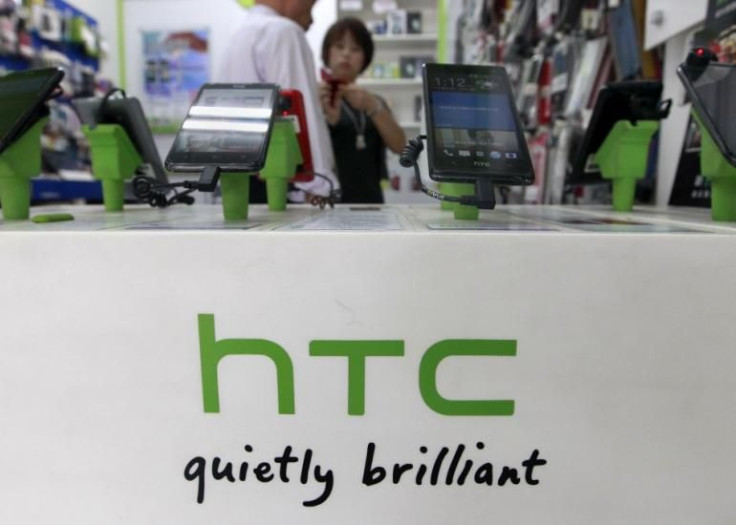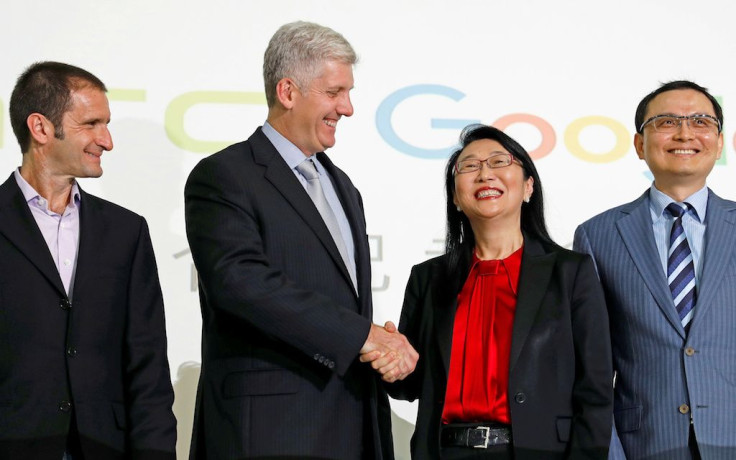Google, HTC Acquisition: Stock Prices, New Phones And Impact Of Deal

HTC has been in dire straits for a while, but the smartphone manufacturer finally got a long-awaited lifeline Wednesday when Google confirmed it would buy part of the company for $1.1 billion.
As part of the deal, Google will take on around 2,000 of HTC’s mobile division employees and gain non-exclusive licensing for the company’s intellectual property, At the moment, investor response to the deal is still shaking out — HTC froze trading Wednesday in advance of the deal, though the company and Google both saw a small jump in stock price Wednesday morning when speculation about the deal first broke. Here’s the biggest takeaways from Wednesday’s HTC and Google news:
Google Is Serious About Hardware
To get a sign about Google’s changing hardware ambitions, look back to its old purchase of Motorola from 2012. Google bought the company for a hefty $12.9 billion, but the awkwardness of owning a company that competed against its own Android partners made the pairing a difficult match. The partnership had high points like the Moto X smartphone, but Google eventually sold Motorola to Lenovo for $2.9 billion in 2014 and its biggest upside from the deal has generally been seen as getting the company’s patents.
But as the release of last year’s Pixel showed, Google doesn’t have any qualms anymore about stepping on the toes of past partners. Thomas Husson, vice president and principal analyst at Forrester, pointed out that HTC’s assets also helps out Google’s manufacturing abilities in other areas.

“New technologies like augmented reality require deeper integration with the hardware,” Husson said. “Due to Android’s massive fragmentation, Google needs to control the distribution of its services and to reduce its traffic acquisition costs.”
With the HTC purchase, Google ultimately wants to mirror the tight control over software and hardware manufacturing that competitors like Apple have long benefited from. The company wants to considered a major hardware vendor and it’s willing to make investments in order to become one.
HTC’s Still Sticking Around
As for HTC, the deal gives the struggling company additional runway to work with. Financially, HTC has been tied to speculation over a potential sale for a while amid dwindling sales and an estimated U.S. market share of only 1.9 percent.
But the partial sale doesn’t answer many of the longer-term questions over HTC’s murky future. Despite selling off nearly half of its research and design team to Google, HTC is remaining in the smartphone business. In a statement on the Google sale, HTC confirmed that it was still working on the successor to its HTC U11. HTC still has assets like its Vive virtual reality division — a field that Google also has significant investments in — but in a market that’s increasingly top-heavy, it remains to be seen how long HTC can keep on going in its current shape.
Google Wants To Remain In The High-End Smartphone Market
Google’s move to expand its hardware offerings ties into a persistent problem that’s nagged Android for years. The Apple phone has always been the iPhone, but when you reverse the question for Android users, what’s the answer? The Samsung Galaxy S8? Huawei? LG’s G6?
Android’s adaptability has been a big driver in its success — the operating system has 53.3 percent of the U.S. market as of June 2017 according to comScore — but until the Pixel, there’s never been a clear and long-term answer to what Google’s phone might be. With the Pixel and upcoming Pixel 2, Google is doubling down on the bet that it can be just as serious of a player in the high-end smartphone market as current leaders Samsung and Apple.
© Copyright IBTimes 2024. All rights reserved.











